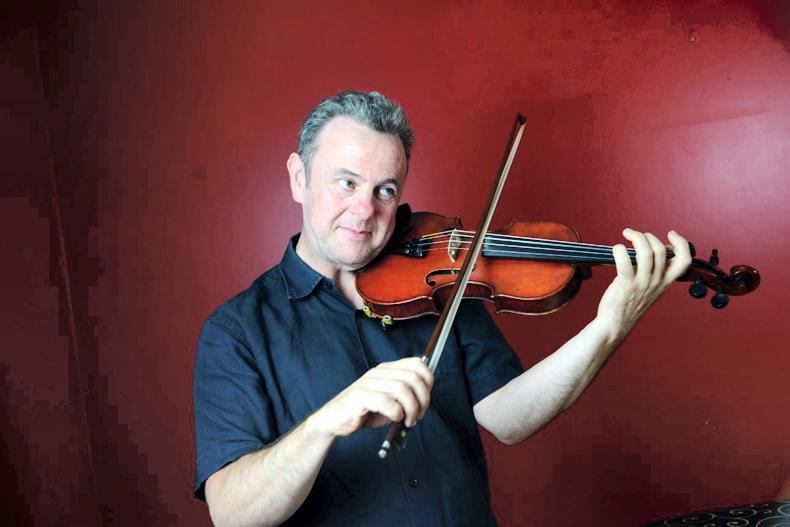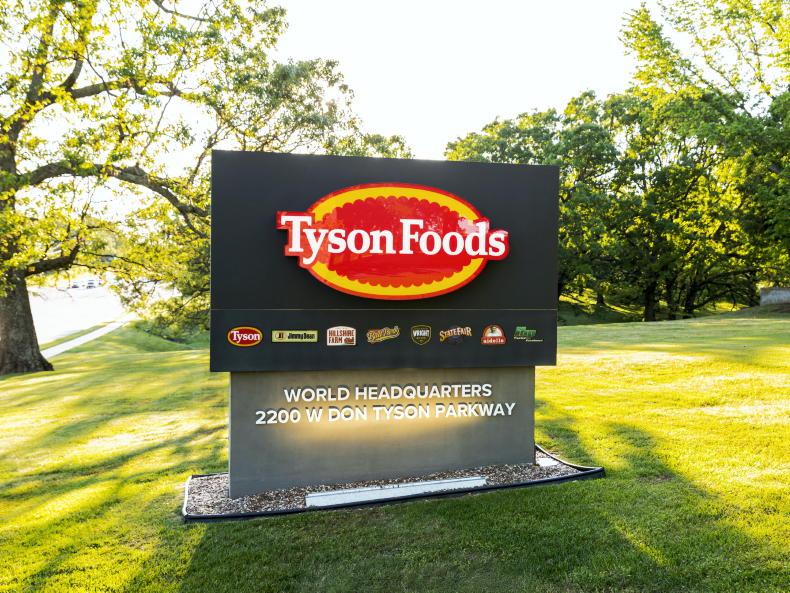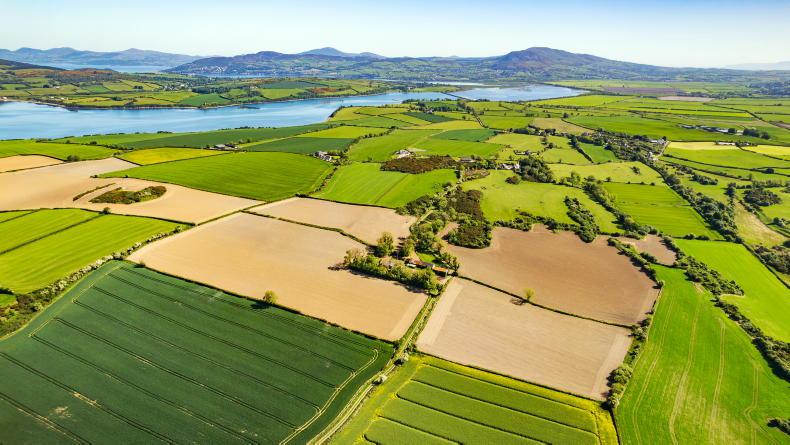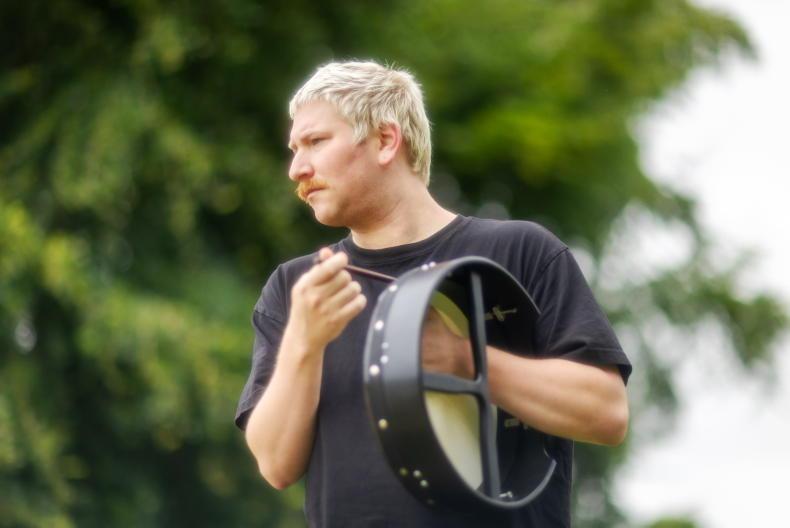I’m a fiddle maker and player, originally from a little linen village called Bessbrook in Co Armagh.
We’re some of the last Irish speakers of north Louth/south Armagh.
My father’s grandmother was a native Irish speaker from near Crossmaglen. We were always aware that it wasn’t very long ago that the Irish language was alive in our area.
I’m learning Irish at the moment. I’m doing a diploma in it. I had basic Irish from school but that was many years ago.

A fiddle made by Paul Bradley.
I was interested in all the old Gaelic songs from south Armagh and I wanted to learn those and understand them. My family are mostly Irish speakers. I was the black sheep, I took to the music and didn’t do much else. Five of my siblings are Irish teachers, although they don’t all follow that as a profession now.
My brother, Dominic, was an Irish teacher for 20 years and a politician for 20 years. He was an SDLP MLA for Newry and Armagh.
My father’s mother came from Co Tyrone. She was a dancer and she lived for people dancing. So there was music on that side of the family.
My father wasn’t a traditional musician but he was a very highly respected cornet player. My siblings and I were all musical growing up, it was just in us. We weren’t encouraged particularly, in that it wasn’t an agenda of my parents that we would be musicians. In fact, they often disapproved of us spending so much time doing it.
They would have preferred if we were doing things that were more orientated towards study and professional achievement. In a sense, it was an escape from those requirements and a rebellion against it.
Travel
At quite an early age I went to Belfast, I was attracted to it because there was quite a lively traditional music scene. I spent some years there before I went to Italy. I originally went to Italy to play at a music festival in 1987 but I ended up staying there for four years and now I speak fluent Italian.
Coming back from Italy I passed through London. I called in on a friend, David Rattray, a very well-known Scottish fiddle maker.
I was of course wondering what I would do with myself as a young person with just fiddle playing as a qualification. I was thinking of a philosophy degree at the time.

A 1743 Guarneri del Gesù violin made by Paul Bradley.
He said, with his strong Scottish accent: ‘What do you want to do philosophy for? Philosophy’s for people who don’t know what they want to do. Get yourself some tools and start making fiddles.’ I took his advice immediately, really.
David told me how to make a scroll for the head of the fiddle and said: ‘Now go away back home to Ireland and make a scroll.’
That’s what I did and I still have that first thing I ever made here at home. It looks quite rudimentary to me now after having done a course and spent years and years making violins. Sometimes I feel like putting it in the fire. At the same time, it also showed some distinct promise and it showed that I had an eye for symmetry and the dedication to carry something off well.
The scroll I made and tools I bought were enough to get me into a violin making course in Newark in England. It was a four-year course. I skipped the first year and went straight into the second year.
I had decided to go to Galway before I left that course because I just fancied something different to the Northern Ireland scene and I knew there was a lively music scene in Galway. I lived in Galway for 16 years. Then I moved to Wicklow for eight years and I just recently moved to Armagh city.
Je ne sais quoi
There are a lot of different things that must work together to make a good violin. You must strive to find a sweet spot in the balance of all those things that is going to produce a fine instrument.
Of course there are scientific, mathematical and mechanical exactitudes that must be conformed too. But on the other hand, if you were working by numbers, you couldn’t make a good violin. It takes an artistic sense of how these things work together to make a good violin.
There’s a sense of alchemy about it. There’s that “je ne sais quoi” that’s in the middle of all these facts, figures and weights – that’s really where a violin maker rises out of mediocrity.
I’ve had some prestigious customers who came to me for services over the years. Frankie Gavin would come to me frequently to get work done on his fiddle and bows rehaired. Another very well-known traditional player from Donegal bought an instrument from me as well, Derek McGinley.
I always play in my workshop. I “play in” the fiddles a bit after I’ve finished them, but I wouldn’t have a lot of time to spend playing out. Before the pandemic I was busy making. The only playing out I was doing was a fortnightly session in the local pub.
I compose music too. I write traditional tunes occasionally when the mood comes on me to do such a thing. I still enjoy playing and I’m looking forward to getting out a bit more and playing a bit more.
I’m a fiddle maker and player, originally from a little linen village called Bessbrook in Co Armagh.
We’re some of the last Irish speakers of north Louth/south Armagh.
My father’s grandmother was a native Irish speaker from near Crossmaglen. We were always aware that it wasn’t very long ago that the Irish language was alive in our area.
I’m learning Irish at the moment. I’m doing a diploma in it. I had basic Irish from school but that was many years ago.

A fiddle made by Paul Bradley.
I was interested in all the old Gaelic songs from south Armagh and I wanted to learn those and understand them. My family are mostly Irish speakers. I was the black sheep, I took to the music and didn’t do much else. Five of my siblings are Irish teachers, although they don’t all follow that as a profession now.
My brother, Dominic, was an Irish teacher for 20 years and a politician for 20 years. He was an SDLP MLA for Newry and Armagh.
My father’s mother came from Co Tyrone. She was a dancer and she lived for people dancing. So there was music on that side of the family.
My father wasn’t a traditional musician but he was a very highly respected cornet player. My siblings and I were all musical growing up, it was just in us. We weren’t encouraged particularly, in that it wasn’t an agenda of my parents that we would be musicians. In fact, they often disapproved of us spending so much time doing it.
They would have preferred if we were doing things that were more orientated towards study and professional achievement. In a sense, it was an escape from those requirements and a rebellion against it.
Travel
At quite an early age I went to Belfast, I was attracted to it because there was quite a lively traditional music scene. I spent some years there before I went to Italy. I originally went to Italy to play at a music festival in 1987 but I ended up staying there for four years and now I speak fluent Italian.
Coming back from Italy I passed through London. I called in on a friend, David Rattray, a very well-known Scottish fiddle maker.
I was of course wondering what I would do with myself as a young person with just fiddle playing as a qualification. I was thinking of a philosophy degree at the time.

A 1743 Guarneri del Gesù violin made by Paul Bradley.
He said, with his strong Scottish accent: ‘What do you want to do philosophy for? Philosophy’s for people who don’t know what they want to do. Get yourself some tools and start making fiddles.’ I took his advice immediately, really.
David told me how to make a scroll for the head of the fiddle and said: ‘Now go away back home to Ireland and make a scroll.’
That’s what I did and I still have that first thing I ever made here at home. It looks quite rudimentary to me now after having done a course and spent years and years making violins. Sometimes I feel like putting it in the fire. At the same time, it also showed some distinct promise and it showed that I had an eye for symmetry and the dedication to carry something off well.
The scroll I made and tools I bought were enough to get me into a violin making course in Newark in England. It was a four-year course. I skipped the first year and went straight into the second year.
I had decided to go to Galway before I left that course because I just fancied something different to the Northern Ireland scene and I knew there was a lively music scene in Galway. I lived in Galway for 16 years. Then I moved to Wicklow for eight years and I just recently moved to Armagh city.
Je ne sais quoi
There are a lot of different things that must work together to make a good violin. You must strive to find a sweet spot in the balance of all those things that is going to produce a fine instrument.
Of course there are scientific, mathematical and mechanical exactitudes that must be conformed too. But on the other hand, if you were working by numbers, you couldn’t make a good violin. It takes an artistic sense of how these things work together to make a good violin.
There’s a sense of alchemy about it. There’s that “je ne sais quoi” that’s in the middle of all these facts, figures and weights – that’s really where a violin maker rises out of mediocrity.
I’ve had some prestigious customers who came to me for services over the years. Frankie Gavin would come to me frequently to get work done on his fiddle and bows rehaired. Another very well-known traditional player from Donegal bought an instrument from me as well, Derek McGinley.
I always play in my workshop. I “play in” the fiddles a bit after I’ve finished them, but I wouldn’t have a lot of time to spend playing out. Before the pandemic I was busy making. The only playing out I was doing was a fortnightly session in the local pub.
I compose music too. I write traditional tunes occasionally when the mood comes on me to do such a thing. I still enjoy playing and I’m looking forward to getting out a bit more and playing a bit more.












SHARING OPTIONS